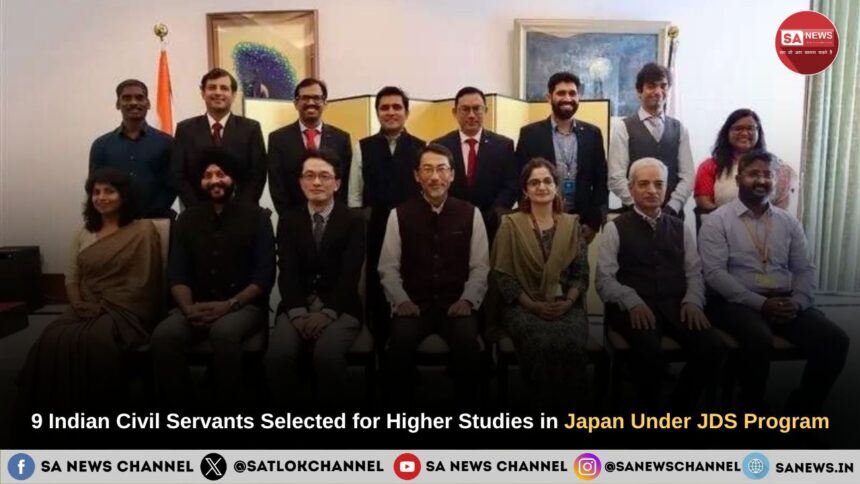Under Japan’s JDS Program, nine Indian civil servants have been selected for postgraduate studies at top Japanese universities including Waseda, Kobe, and Hitotsubashi. This initiative strengthens Indo-Japan cooperation by enhancing policy-making, fostering deeper collaboration, and exposing officers to global best practices that can be implemented in India’s administration. Read the full article to understand how this benefits both India and Japan.
Main Points of the JDS program:
- Nine Indian civil servants have been selected for higher studies in Japan.
- Selected officers belong to services such as IRSE (Indian Railway Service of Engineers), IAS (Indian Administrative Service), ITS (Indian Trade Service), and IRS (Indian Revenue Service).
- They will pursue postgraduate courses in Japan.
- The program aims to enhance their technical and administrative expertise through international exposure.
- This is part of Indo-Japan cooperation on education and skill development.
9 Indian Civil Servants Selected Under JDS Program
Nine Indian civil servants have been selected for postgraduate programs at top Japanese universities under the Japan Development Scholarship (JDS) program. These officers come from the Indian Administrative Service (IAS), Indian Police Service (IPS), Indian Revenue Service (IRS), and other central civil services.
What is the JDS Program?
Launched in 1999 by the Japanese government, the Japan Development Scholarship (JDS) Program is designed for Human Resource Development. It supports professionals who will contribute to social and economic development. Under this program, scholarships are offered for Master’s and Doctoral degree courses in Japan.
Fields of Study in Japan under JDS program
Selected officers can pursue Master’s and Doctoral degrees in disciplines including Public Policy, Governance, Economics, International Relations, and more. Course durations vary depending on the chosen program.
Mutual Benefits
This Indo-Japanese initiative strengthens bilateral cooperation. For India, it offers civil servants exposure to advanced technologies and best administrative practices they can implement back home. For Japan, it enhances diplomatic ties, boosts soft power, and improves its international image.
Japanese Ambassador to India
Ono Keiichi, speaking to WION News, said, “They will become a bridge between Japan and India, benefiting both countries.”
The Real Purpose of Education
The true purpose of education is to understand the Maya Jal (the illusion of the material world). According to the Bhagavad Gita, one of the most important Hindu scriptures, the greatest illusion is watching others die while ignoring the inevitability of one’s own death, this is the Maya Jal.
Trapped in this illusion, people endlessly chase material gains, missing the chance to escape the cycle of birth and death without spiritual guidance.
Want to know how to break free from this cycle? Click here:
FAQs about JDS program
1. Which state produces the most civil servants?
Uttar Pradesh is known for producing the highest number of civil servants historically.
2. What is the salary of an IAS officer?
Salaries vary but generally range from ₹50,000 to ₹2,50,000 per month depending on rank and experience.
3. What is the name of the national civil examination in Japan?
In Japan, the civil service exam is known as Kokka Kōmuin.
4. Which is the highest paying job in Japan?
Surgeons top the pay scale, along with C-suite roles such as Chief Medical Officers and senior IT and development executives.
5. Why is an Indian village called the ‘IAS factory’?
Madhopatti village in Uttar Pradesh has produced 51 IAS and PCS officers, earning it the nickname “IAS factory.”









